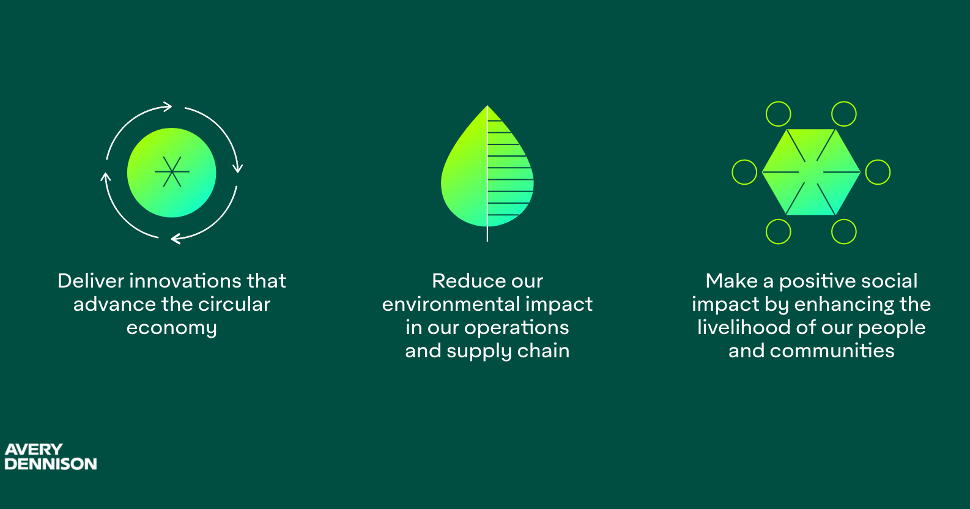Avery Dennison has announced its ambition to be net-zero on greenhouse gas emissions by 2050. This commitment comes as the company raises the bar on its sustainability goals with new targets for 2030.
As part of these new targets, the Label and Graphic Materials (LGM) business commits to 100% of its core film and paper product categories globally containing recycled or renewable content. And all of its regions will also have labels that enable the circularity of plastics. This will ensure that Avery Dennison is well-positioned to satisfy current or future recycling, composting or reuse requirements for single-use consumer plastic packaging. The company is also expanding its portfolio to include more intelligent labeling to advance the communication of data, reduce costs and waste, and create better recycling processes.
The specific 2030 targets fall under three broad sustainability goals:
• Deliver innovations that advance the circular economy;
• Reduce environmental impact in operations and supply chain; and
• Make a positive social impact by improving the livelihoods of people and communities.
In addition, the company’s 2030 ambitions include procuring paper exclusively from responsibly-managed forests to help ensure a deforestation-free future. LGM will continue to invest in industry collaborations like CELAB to promote and deliver matrix and liner recycling globally, and the company will engage with the majority of its direct suppliers on their environmental and social practices affecting water, human rights, fair business, forestry, and similar important interests.
“Meeting our 2030 ambitions will be the greatest test yet of our capacity to innovate, as well as an invaluable opportunity to position our business for lasting success,” said Renae Kezar, senior director, global sustainability, Label and Graphic Materials, Avery Dennison. “We are proud to have exceeded our 2025 goal for reducing absolute GHG emissions, and we are making steady progress on our other sustainability commitments.”
The company has also pledged to reduce emissions by 70% against its 2015 baseline, and to work with its supply chain to reduce Scope 3 emissions by 30% against its 2018 baseline. The company’s overall ambition is to produce net-zero emissions by 2050 and enable a future of regeneration. The 2030 goals also include targets for gender diversity, employee engagement and inclusion, safety, and more.
“With our 2030 goals, we’re expanding our focus to make an even greater difference,” said Kezar. “Since establishing our original sustainability goals, we’ve gained a greater understanding of where our business overlaps with the world’s most urgent environmental challenges — and importantly, the areas where we can, and will, lead.”





